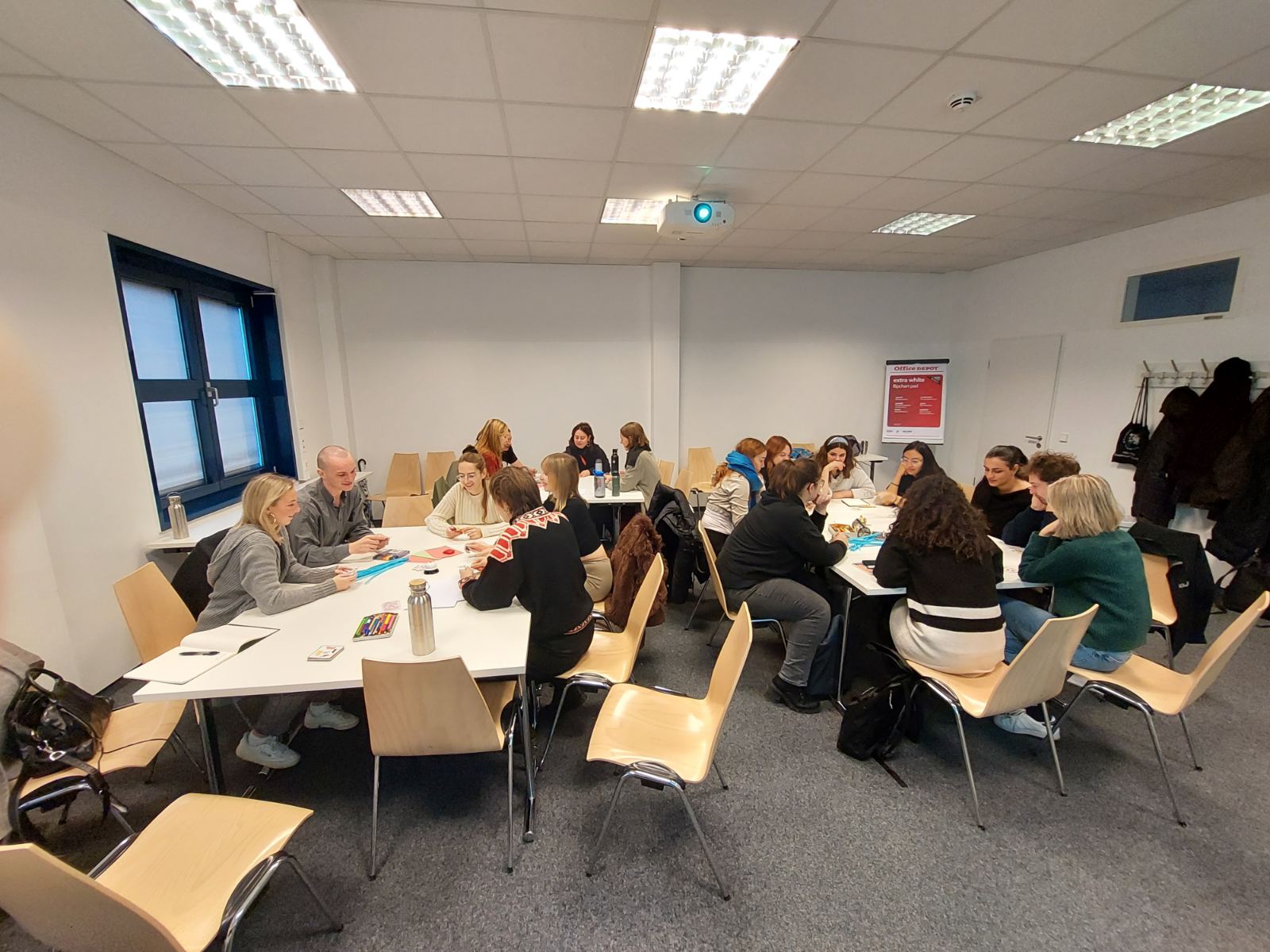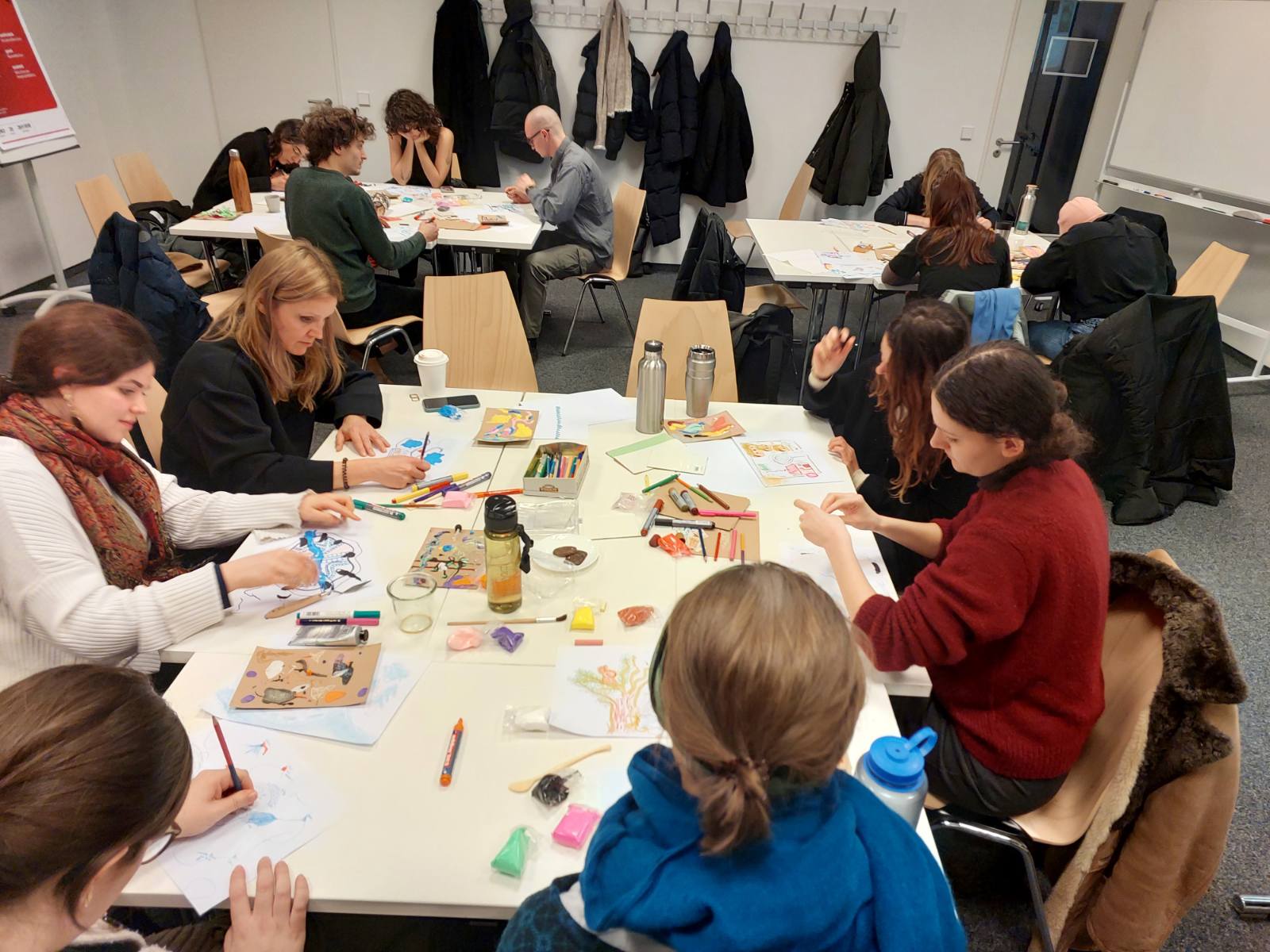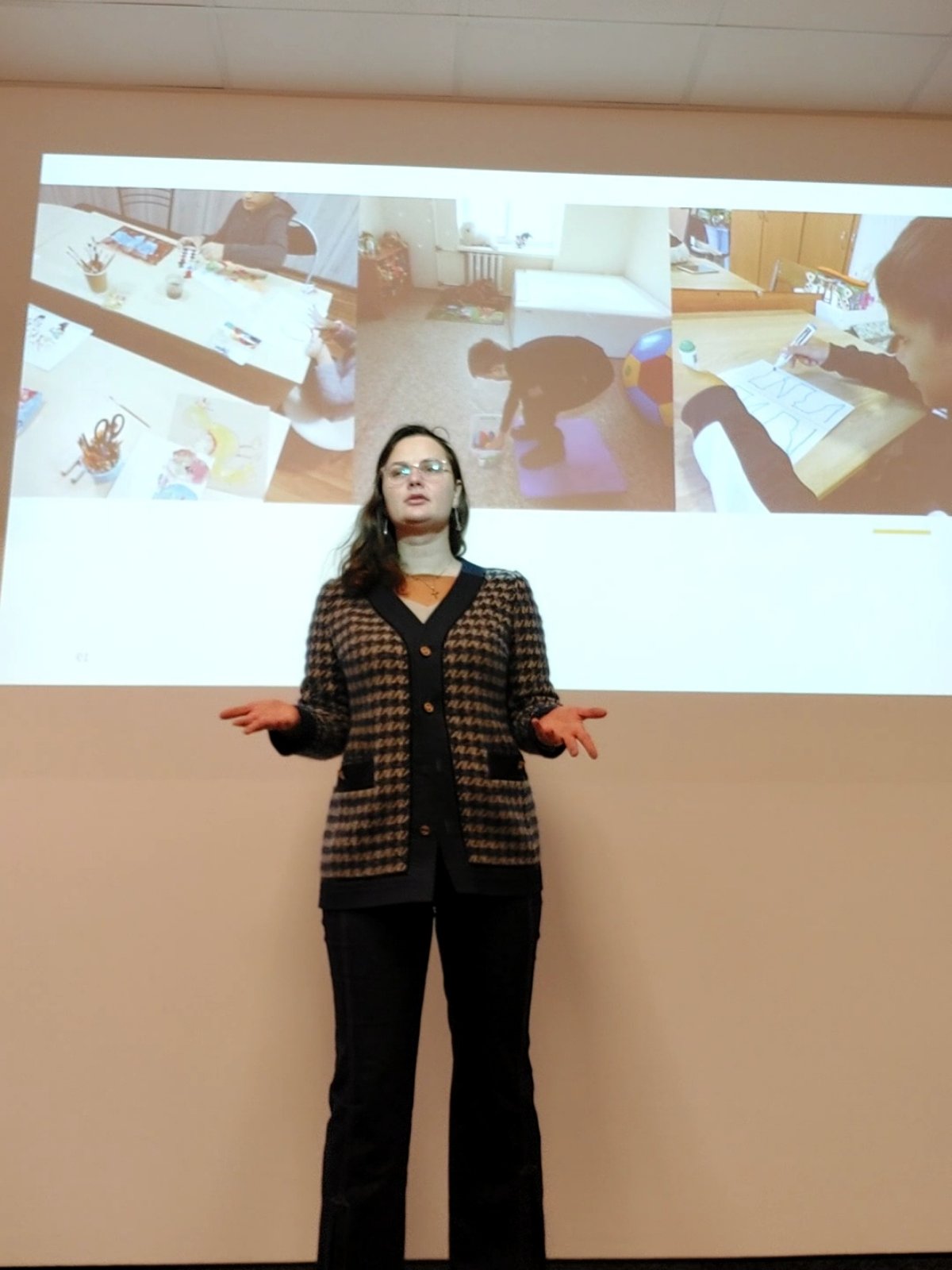This has been one of the most enjoyable experiences for me this year, associated with conducting workshops as part of the DAAD scholarship at the International Psychoanalytic University Berlin.

There are several reasons for this. Firstly, the art therapy workshops were based on my previous experience implementing a trauma-sensitive approach in psychotherapy with children and adolescents who have suffered from the war in Ukraine in the preceding months. Therefore, it provided rich material in terms of case studies and techniques for working with art.

Secondly, as a psychologist and artist by education, art therapy is my passion. Therefore, it was a pleasure for me to share some results and techniques during the first workshop in November on sensorimotor art therapy with bachelor's and master's students at the University of Berlin. I feel the powerful potential of the sensorimotor art therapy process, utilizing movement, rhythm, and the body's experience in working with traumatic experiences through art.
In December, we implemented one of my favorite themes in the workshop - working with sculptural materials in art therapy and techniques that are relevant in the context of psychological support in dealing with complex emotions. I can affirm a subtle reflective connection with the group, from working with whom I derived satisfaction as an instructor and deep psychological interest as a researcher.

Unfortunately, the current online learning environment in Ukraine encourages professors to use digital tools in art therapy. Nevertheless, I remain steadfast in trusting the hands-on work with art materials as a healing tool for traumatic experiences. Therefore, the last point in my writing, though not the least significant, was the conduct of workshops in the traditional classroom format.
For me, this was the pivotal experience that has left my heart in Berlin.
The material was prepared by PhD Kateryna Bondar.






